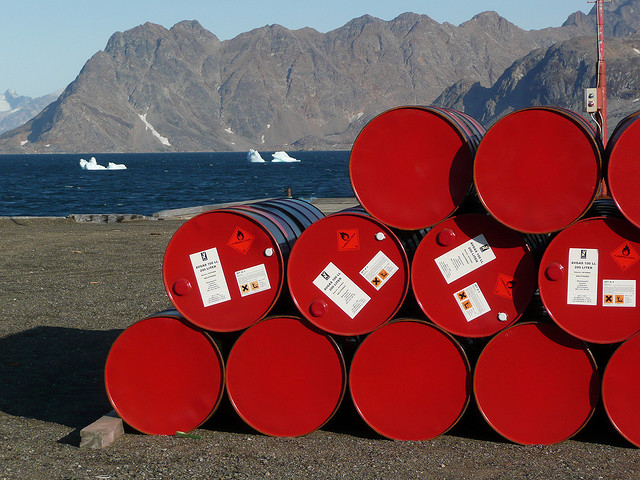
CalPERS is measuring the carbon footprint of its portfolio. CalSTRS is helping to fund a study on the market impact of climate change.
For the first time, institutional investors are beginning to wonder: How will climate change impact the value of our investments?
Howard Covington of Cambridge University and Raj Thamotheram of the Network for Sustainable Financial Markets tackled that question in a recent paper, titled How Should Investors Manage Climate Change Risk, in the most recent issue of the Rotman International Journal of Pension Management. From the paper:
The consequences of high warming, if we collectively go along this path, will emerge in the second half of this century; they are therefore remote in investment terms….Capital markets anticipate the future rather well, which suggests that investment values may respond strongly over this time scale as views on the most likely path begin to crystallize. Technologies for producing and storing electrical energy from renewable fuel sources, for energy-efficient housing and offices, and for reducing or capturing and disposing of greenhouse gas emissions from industrial processes are moving along rapidly. In important areas, costs are falling quickly. Given appropriate and moderate policy nudges and continuing economic and social stability, it is overwhelmingly likely that the global economy will substantially decarbonize during this century.
If…an emissions peak in the 2020s becomes a plausible prospect, investment values for fossil fuels, electrical utilities, and renewable energy (among others) will react strongly. The value of many fossil fuel investment projects will turn negative as assets lose their economic value and become stranded; companies and countries will face significant write-downs, with clear consequences for financial asset prices.
As the authors note, we don’t know exactly how the earth will eventually react to greenhouse gasses. Different responses will have different implications for the global economy. From the paper:
If we are unlucky, and the climate’s response comes out at the upper end of the range while emissions go on climbing, the likelihood of the global economy’s potentially heading toward rolling collapse will significantly increase. A run of extreme weather events in the 2020s, particularly events that lead to sharp increases in prices for staple crops or inundate prominent cities, might then focus the attention of the capital markets on the consequences. A broad adjustment of asset values might then follow as investors try to assess in detail the likely winners and losers from the prospect of an increasingly turbulent global social, economic, and political future.
We are not suggesting that this kind of outcome is unavoidable, or even that it is the most likely. We are merely noting that the chance of events’ unfolding in this way over the next 10 to 15 years is significant, that it will rise sharply in the absence of a robust climate deal next year, and that long-term investors need to factor this into their investment analysis and strategy.
If these scenarios correctly capture the likely outcomes, then we have reached a turning point for the global economy. For the past 150 years, the exploitation of fossil fuels has generated enormous value for investors, both directly and by enabling global industrialization and growth; but it is now rational to anticipate that continued and increasing emissions from fossil fuel use might, over several decades, lead to the destruction of investment value on a global scale. Moreover, capital markets may adjust to this possibility on a relatively short time scale.
So how should institutional investors respond?
Broadly speaking, there are three main ways that investors can help. The first is to raise the cost of capital for companies or projects that will increase greenhouse emissions. The second is to lower the cost of capital for companies or projects that will reduce greenhouse emissions. The third is to use their influence to encourage legislators and regulators to take action to accelerate the transition from a high- to a low-emissions economy.
Formally adopting a policy of divesting from the fossil fuel sector can be helpful with the first of these, provided that the reasons for doing so are made public, so that other investors are encouraged to consider their own positions. Alternatively, active investors might take significant shareholdings in fossil fuel companies, so as to exert a material strategic influence to prevent investments that encourage long-term value destruction.
Supporting investments in renewable energy sources and related sectors is particularly effective where the potential exists to disrupt traditional industries. Tesla Motors is a case in point, since the potential for rapid growth of electric vehicles could transform the auto industry. Through the related development of high-performance, low-cost battery packs, it may also transform both the domestic use of solar power and the electrical utility business.
There is little time left for legislators to agree on the terms for orderly cooperative action to reduce emissions. Investors concerned about long-term value should act now to encourage the adoption of mechanisms to ensure an early peak and rapid decline in greenhouse missions. By the end of 2015, the chance for this kind of action will have largely passed.
The above excerpts represent only a portion of the insights the paper has to offer. The rest of the article can be read here [subscription required].
Photo by Penagate via Flickr CC

